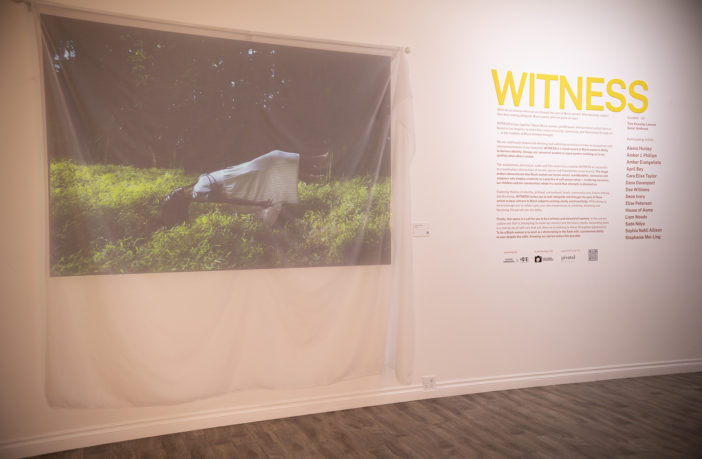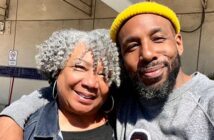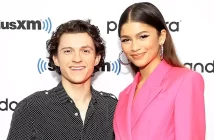Artist Sophia Nahli Allison’s projection investigates the supernatural abilities of Black women. (Adrian Javon)
WACO Theater Center’s most recent exhibit WITNESS showcases a diverse range of works from 16 Black femme-identifying artists projecting their vision of the world, society, community, and themselves through their art. Viewers of all walks are invited to bear witness to “what they may not otherwise see on their own.”
The 8-week exhibit, which opened April 1, is curated by WACO vice president Tina Knowles Lawson and Genel Ambrose, founder of GOOD MIRRORS, a cultural institution and multidisciplinary studio committed to accurately reflecting Black women as whole and dignified beings.
Located at 5144 Lankershim Boulevard in the North Hollywood Arts District, the gallery is open to the public Friday, Saturday, and Sunday from 12:00 p.m. to 6:00 p.m. or by appointment through May 27, 2023. Admission is free.
Artists featured in WITNESS range from filmmakers to quilters, and the roster includes Alexis Hunley, Amber J. Phillips, Amber Evangelista, April Bey, Cara Elise Taylor, Dana Davenport, Dee Williams, Deun Ivory, Elise Peterson, House of Aama, Liam Woods, Sade Ndya, Sophia Nahli Allison, and Stephanie Mei-Ling.
“I really gravitated toward artists who were unapologetic about their art as a tool for creating conversation about identity, artists that share Black feminist values in the sense of finding oneself for oneself and using art to do it,” said Ambrose.
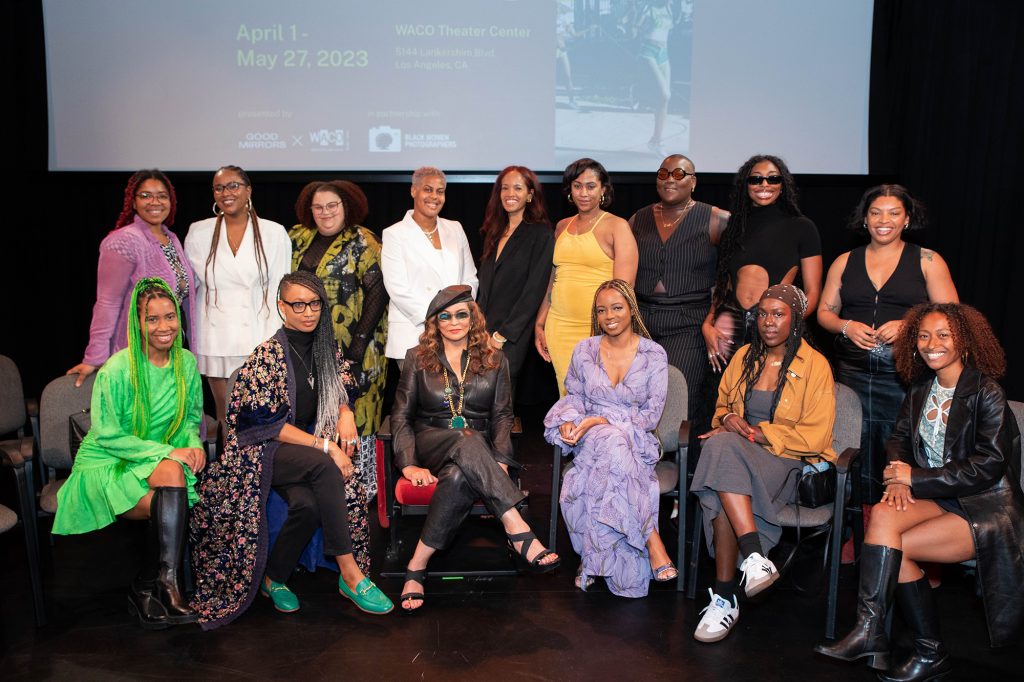 WITNESS artists and curators on opening night. (Ashley Byrd)
WITNESS artists and curators on opening night. (Ashley Byrd)
Numerous special events, including artist talks and community workshops, are offered throughout the run of the exhibit, on Sundays. Additionally, each day, visitors are invited to share and record their own personal stories through an interactive installation entitled, TRUTH, a digital storytelling platform. This AI (artificial intelligence) innovation, spearheaded by Ambrose, aims to combat algorithmic biases, impacting the data and metadata that shape the lens through which Black women and girls are depicted online—and on a greater scale within society.
“Black women are often talked about in terms of demographics: ‘Black women spend X amount of dollars,’ or we ‘vote in certain ways,’ says Ambrose.
“It’s [almost]never about Black women as whole human beings with feelings; we’re not discussed in those ways. So, the Truth platform features stories from Black women by Black women for Black women that really speak to us celebrating ourselves the way we think about ourselves, our families, our community. Our reflections. If you could ask the Black woman how she feels about herself, what would she say in comparison to what you would find online? This is meant to bridge the gap around how we see ourselves and how that should actually be reflected online in the world.”
A first-generation American, Ambrose grew up with little knowledge of African American studies. However, she’s been no stranger to the unique challenges of the African American experience, and she’s found that art has helped her through them.
“I had an experience where I felt diminished by some colleagues, being one of the few women of color [in the workplace], and I really delved into art–Carrie Mae Weems, Ming Smith’s self-portraiture, the work of Deborah Willis, and the writings of Audre Lorde and bell hooks, and Toni Morrison,” Ambrose recalled.
“I just found myself on a path, engaging with these different artists and saw them speaking about Black women in ways that I hadn’t seen or discovered before. I feel like my purpose is to remind Black women and girls of their divinity through the works and credibility of Black women writers, artists, storytellers, image makers, etcetera.”
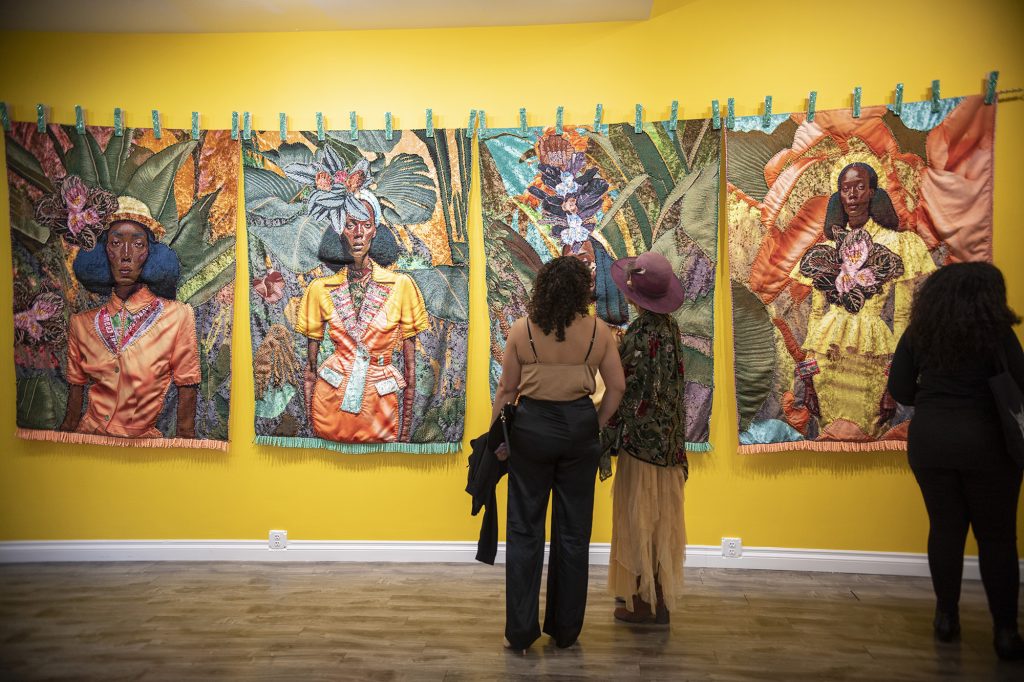 April Bey’s large-scale textile portraits on display. (Adrian Javon)
April Bey’s large-scale textile portraits on display. (Adrian Javon)
Response over the past few weeks has been affirming. “People are touched,” Ambrose observed. “Opening weekend…I came across a few women who were openly weeping as they engaged with the art.”
Unsurprising, as WITNESS invites Black women to reflect on identity, lineage, and ancestral wisdom.
“Those are our superpowers that really allow us to thrive in the world,” said Ambrose. “Because we’re often disregarded, unfortunately, by wider society, we do have a vantage point that makes us seers and visionaries. We’ve had to be, for our own survival, so that we could thrive in our own way. I think these artists represent visionaries, seers, conjurors and what it actually means to be an artist.”
In multiple ways, the exhibit encourages visitors to interact with their own stories as well, in a sense blurring the lines between and joining the hands of artist and viewer. For Ambrose, the connective, overarching theme is clear. “Know your stories,” she said. “That’s how you will thrive in the world.”
